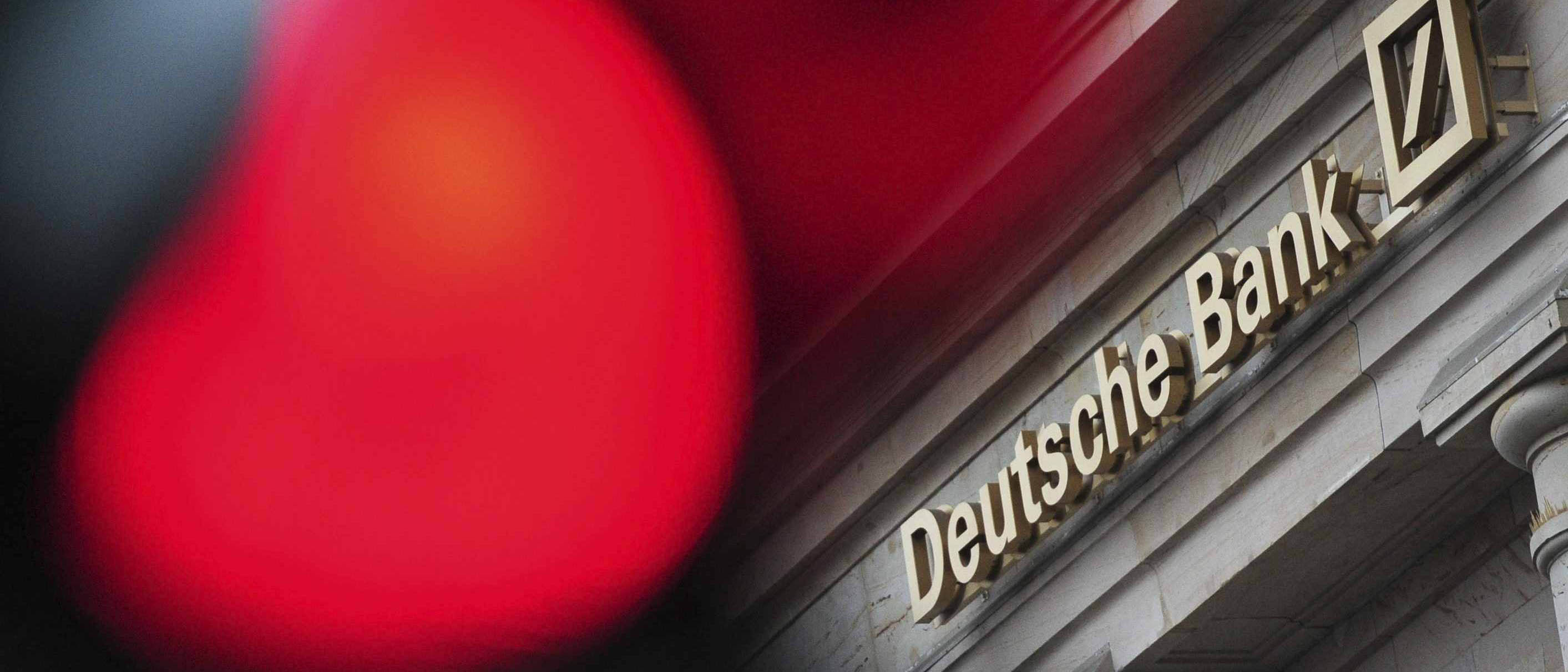The agreement would see the bank pay €1.4 billion in relation to manipulation of interbank tax. The tax had an effect on a wide range of financial instruments and some loan companies, according to one source.
The deal will see the British subsidiary of Deutsche Bank Group Services plead guilty to the charges, according to reports in the Financial Times, and could be completed later this month. Deutsche “will pay fines of more than €1.4 billion to the CTFC, the body that regulates derivatives markets in the U.S, the Department of Financial Services of New York (DSF) and the Authority of Financial Conduct in the UK to conclude the investigation by the Department of Justice,” according to Bloomberg who quoted two unidentified sources.
The deal would represent the largest fine imposed on any institution in relation to rates rigging allegations. If the fine is confirmed “the full amount would be about 50% of estimated profits for 2015 and about 3% of its overall capitalisation (36bcp CT1 at a level of 10%), but the banks capital will be limited because of higher provisions made for settlements (over €2 billion). The risk is that this is not the only case that Deutsche is involved in,” according to analysts at Bankinter.
Deutsche Bank, along with others such as UBS, JPMorgan and the Royal Bank of Scotland, paid fines to the European Commission in December 2013 of €725 million euros for a scandal that erupted in mid 2012. So far, several banks have paid fines of €170 billion for manipulating the credit ratings of financial assets backed by subprime mortgages.
Is this enough?
Industry sources say the proportion of such fines with respect to the entities’ profits is minimal.
For example, Bank of America-restructured in 2008 with public money-paid $16.5 billion in fines for their role in proliferating junk loans. The penalty was divided into $9.650 billion in cash to the federal government and $ 7 billion to consumers in addition to the $5.6 billion paid to outside agencies for the costs incurred in assessing claims against the bank. In the entirety of 2014, the firm made $3.789 billion in profit, a figure 62% lower than the $10.082 billion net profit recorded in 2013.
“I cannot judge whether the magnitude of the fine is correct or incorrect. What I do know is that I see that although many behaviours have changed after this crisis; we still see too many scandals: Libor, Forex, abusive markets … ” David Wright recently explained to The Corner. In his interview, the Secretary General of IOSCO (which you can read here) reckoned that supervision of financial markets still contains too many flaws.
“2015 is the year new standards will be implemented. With regard to corporate governance, behaviour and corporate culture, I agree with you that there has not been enough progress. I call it the fifth column missing from global financial regulation. If you look at all the major companies that failed, they were characterised by megalomaniac CEOS, weak councils, useless risk committees and poor audit committees. No society can accept that and the situation must change. People working in the financial sector who cheat and abuse their privileged positions have to go to jail,” Wright insisted.






Be the first to comment on "Is Deutsche Bank Libor settlement enough?"